Losing weight without weighing your food
Can you lose weight without weighing and measuring everything you eat? The answer is yes, but it might be a little harder and take a bit more time to get there.
I used to be one of those people who always said I didn’t want to be one of those people who tracked my food, weighed everything I put in my mouth and checked calories on everything before I ate it.
I’m still not one of those people, well, because I don’t care about calories. I care about macros? I guess it’s sort of the same but also very different. I don’t care how much calories I eat because I am more concerned about the combination of the calories – the macros.
In this post I will dive into two different views:
- How can you lose weight without measuring everything
- WHY you should measure everything
Table of Contents
Not weighing anything
Why should you not weigh anything you eat?
I think this is the first question you have to answer.
If it is because of other people’s perceptions, you should leave that behind. Ignorance is fear and people fear what they don’t know, understand or are unfamiliar to them.
If you do it for yourself, that is excellent, go ahead!
So, how should you do it?
Losing weight is all about making sure you burn more calories than you get in your body aka eat. So the clue here is to either become more active or restrict your eating, or both.
Restricting food intake
An easy way to restrict your food intake is of course to eat less. The problem with eating less is that you’ll go hungry. And if you go hungry, unless you’re very good at self-control, there is a chance you’ll start cheating aka eating. Eating while you’re hungry is usually not the problem.
The problem here is that if you’re very hungry and don’t have anything healthy nearby you’ll go for whatever you have. If it’s something unhealthy that’s a bad idea, at least if you’re goal is losing weight. The second challenge here is that if you go very hungry and then eat there is a chance you’ll eat more than you should.
The reason for this, as I see it, is twofold.
- Your eyes are often hungrier than your stomach. Meaning that you eat too much and maybe too much of the good stuff.
- You are used to eating way more than you should. It takes time to adapt to this, both physically and mentally. So, if your body and mind haven’t adapted you can end up eating way more than you should
Therefore, a lot of people commit to a low-carb diet. This diet means you should eat fewer carbs (less than 100grams per day) and more fat. Fats from plants such as avocado, olive oil, and nuts are great sources.
Restricting carbs will lead to your body start burning your fat instead of the quick carbs that it is constantly fed. It will also ensure your blood sugar is kept at a more even rate. Meaning you won’t get those cravings you can experience when you eat a lot of carbs.
A bonus here is that you will (maybe not in the first days) feel more energetic as well. Because your energy level is more stable because you don’t eat fast carbs. Examples of quick carbs can be bread, pasta, bulgur, couscous, potatoes, sugar, cereal, oats, sweetened yogurt, beer, juice, cakes and pastries, corn, beans, and low-fat/ fat-free salad dressings.
If you combine a low-carb diet or any diet with working out, which we highly recommend, you have to make sure you get enough protein in your body! There are lots of different advice on how much protein you should eat per day.
The RDA (Recommended Dietary Allowance) argue only 0.8g per kilogram body weight is enough. However, this is what you need to meet your basic nutritional requirements, so you don’t get sick. If you want to build muscle, this is way too little! Bodybuilders argue for about 2g per kilogram bodyweight.
What we aim for is about 1,6-1,8 g per kilogram bodyweight, we believe this is a nice guiding principle. If you are heavily overweight I recommend you do some research on this.
So, in order to make sure you get enough protein you have to learn how much protein there is in different protein sources, you should also learn how much fat and/ or carbs it has. Learn the fat:protein:carb ratio in different food sources, and learn to eyeball the sizes. We have written a post with some tips on how you can do this.
Processed foods
Another low hanging fruit is to stop eating processed foods. This will not only do wonders for your body, metabolism, colon, etc, but a consequence will also be that you lose weight. If you stop eating processed food make sure you add some salt to your meals as processed food usually has tons of salt. Not adding any salt to your unprocessed food can cause cramps etc.
Another obvious one is to stop eating candy, cakes, and other sweets. This could be a part of the processed food paragraph, but this is a really important point if you don’t want to weigh your food. It is also a low hanging fruit. Cut the unhealthy foods in your diet and you will lose weight, without weighing anything. If you are to eat the occasional sweet or pastry, I highly recommend it to be unprocessed.
The reason as I see it is again twofold.
- If it is unprocessed, it probably has fewer macros in it and its easier to control exactly what you get in your body. Processed foods often have way more fat and carbs than is necessary.
- Processed foods are so unhealthy. Not only because of the extra macros/ calories. But because the food have to stay fresh longer it has all sorts of nasty ingredients in it. Your body doesn’t really doesn’t like these, these can be for example preservatives and stabilizers.
Another bonus is that if you make it yourself you can use spelt flour also known as dinkel wheat or hulled wheat. This species has been cultivated since 5000 BC, and it is a good source of dietary fiber, vitamins, and minerals. It is also easier for the body to digest. However, spelt does contain gluten, although a bit more “delicate” than in wheat, so it can cause discomfort to people who have celiac disease or are gluten intolerance.
Ok, back to the topic, losing weight is pretty much all about restricting calorie intake. You can do that without weighing food, but you have to be very mindful of how much food you need, what you eat and when you eat it.
Weighing everything
So, now we have discussed how you can lose weight without weighing your food, as you can see it is totally doable! I want to address the other side of this coin as well, why you should weigh your food, if you’re 100% convinced you can stop reading now ?
Let’s be honest, weighing your food can sometimes feel like a hassle, but it’s all about the mindset, how you choose to think about it is up to you. You can choose to look at it as something challenging and limiting or something that ensures you get the right amount of macros into your body.
Macros
While we’re on the topic of macros, this is a great advantage of weighing your food. You can count your macros. Macros are, as I mentioned above, basically the composition or ratio between protein, fat, and carbs.
When you count macros you don’t count calories. Counting macros will ensure you know exactly how much carbs, fat, and protein you get in your body.
This is a great advantage because when you know you much you’ve eaten you can, if you have the macros for it, go crazy and eat whatever you crave for. At least once in a while. However, I recommend you stay away from processed foods, as I have written about above ?
Hunger
Another benefit of weighing your food is the hungry part. You won’t be less hungry if you weigh your food, but you’ll know exactly how much you can eat. So its easier to control yourself so you don’t overeat.
When you are on a diet and are on a calorie deficit I have the experience that my mind will “trick me” into thinking that I eat less than I actually do. Simply because my body craves food. Hence, it is super important to make sure I don’t fool myself and eat more than I should, but most importantly to make sure I actually get the right nutrients in my body so it can perform. When I am on diets, I often get really really great workouts and workout results, and I think it’s because of this. That my body gets the right macros and nutritious although it is on a calorie deficit.
If you decide to weigh your food I recommend that you food prep the day in advance. This way your meals are ready, and you don’t have to think about what you should eat and make decisions while you’re hungry. That is usually never a good idea, at least not for me?
Losing weight and working out
If you combine working out with restricting your food intake counting macros and keeping track of what you eat will be especially important. The reason for this is that you want to make sure your body gets what it needs.
For example, you have to get enough protein in your body in order to build muscle, if you do weight training and your body doesn’t get enough protein, aka building blocks, it will start using the ones it already has, trust me, you don’t want that. Because then you don’t get the results you want. If you train (really) hard (be honest with yourself here) you also should eat carbs before and after working out. This is because your body will then get more energy to perform and recover.
So, the benefit of counting macros and weighing your food is that you will make sure your body gets exactly what it needs.
Other than that all the same tricks for not weighing food go for this one do. Limiting your carb intake, stop eating processed foods and sweets.
If you want to learn about more ways you can create a sustainable healthy lifestyle click here. If you are tired of using the weight we have written about 4 tips we have used to be better at living without weighing our food. However, I’d like to say that when we are on diets we weigh our food.
Conclusion
I think the conclusion is up to you, you have to try and see what you like. Personally, I prefer a balance. If I’m on a diet I weigh my food, if I’m not or just want to get a little bit leaner I just make some small adjustments and make sure I’m mindful about what I eat.
Good luck! We’d love to hear what works for you in the comments below ?
Featured image photo credit: Photo by Fidel Fernando on Unsplash
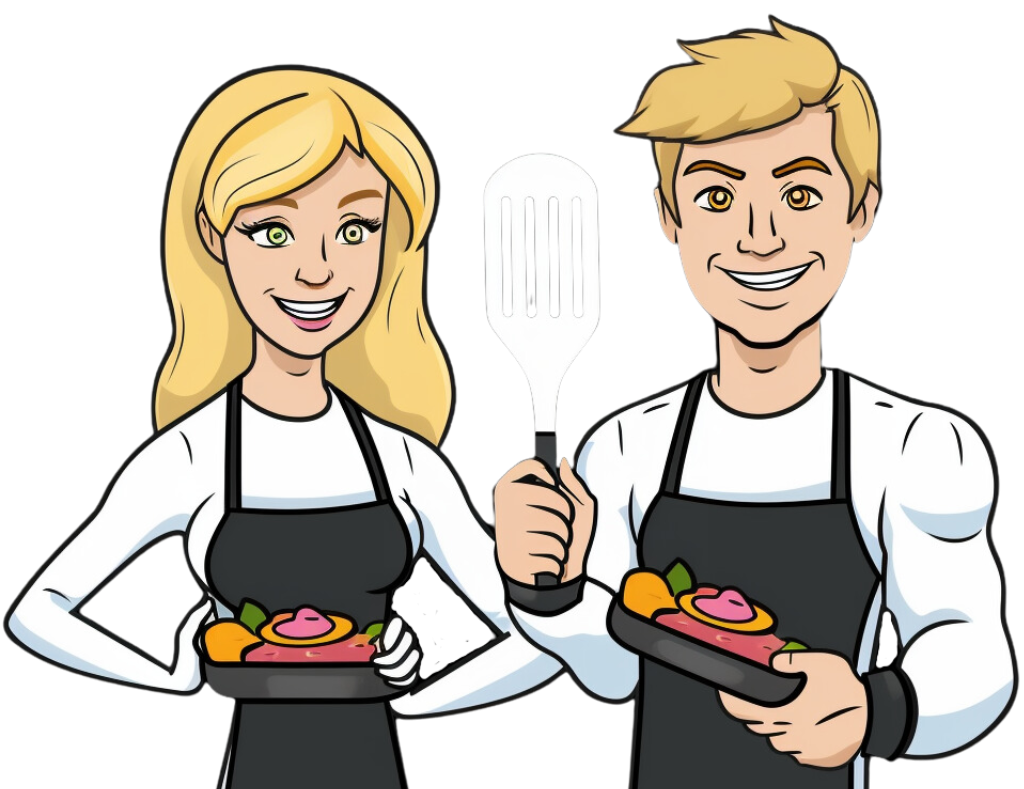


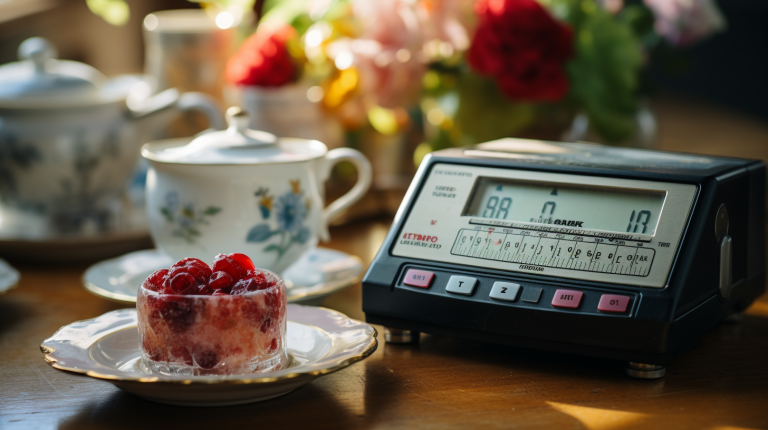
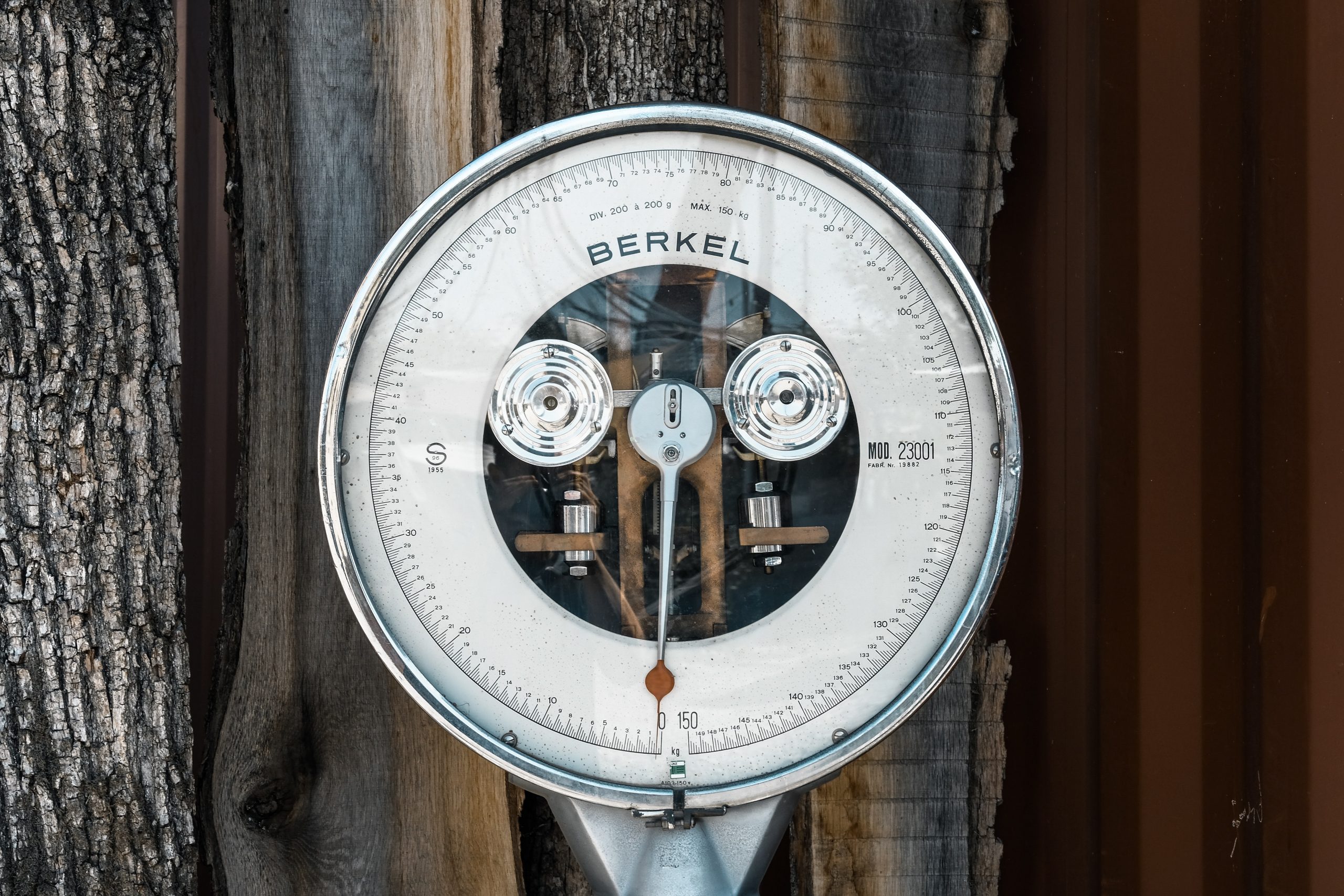
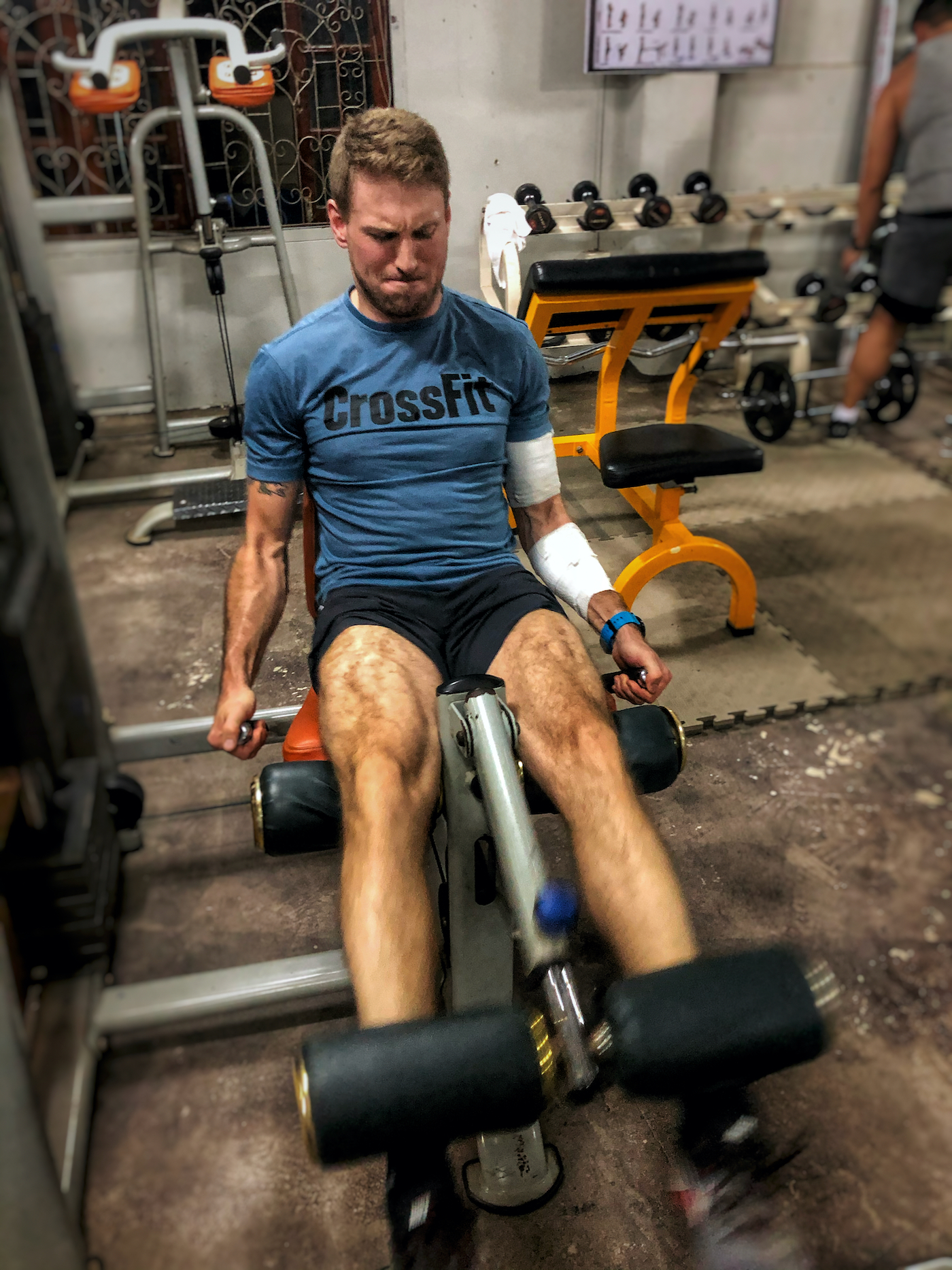
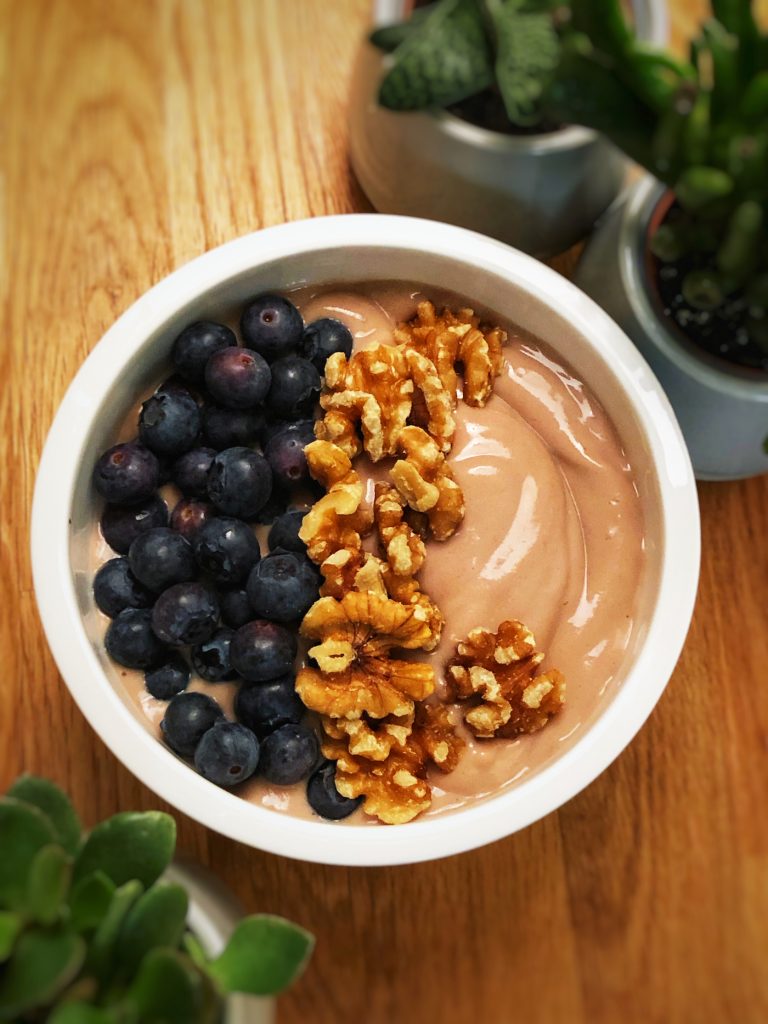
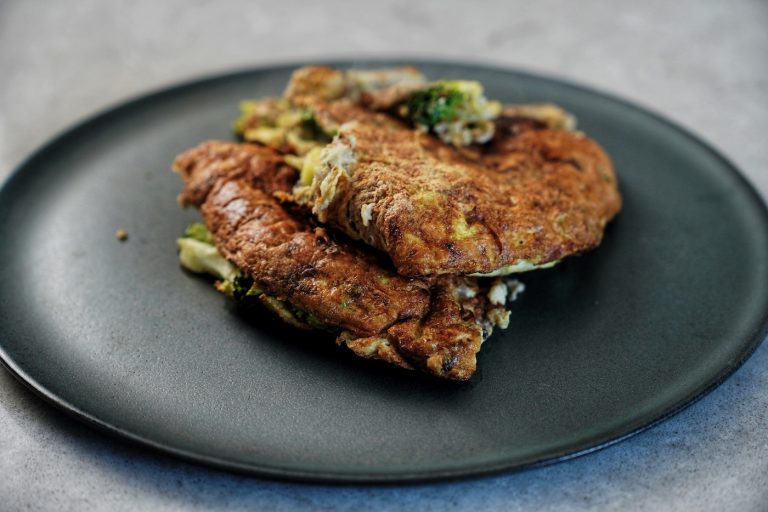
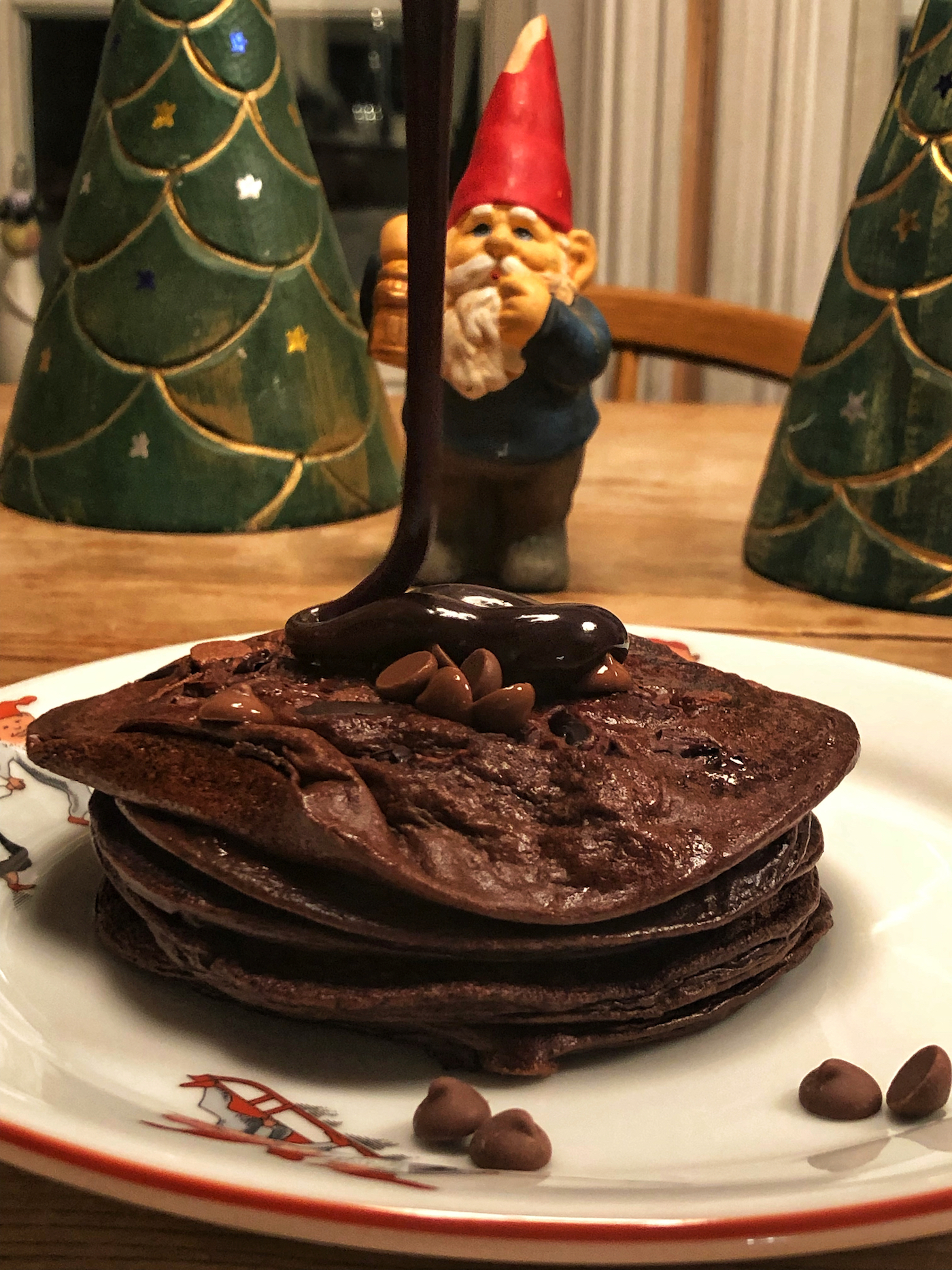
Awesome post! Keep up the great work! 🙂